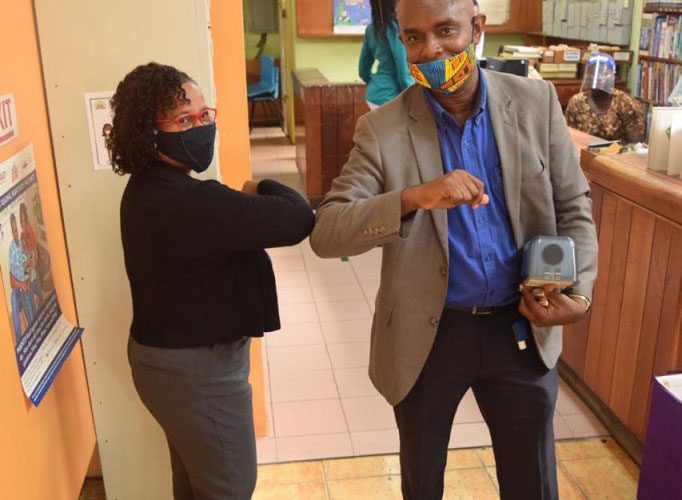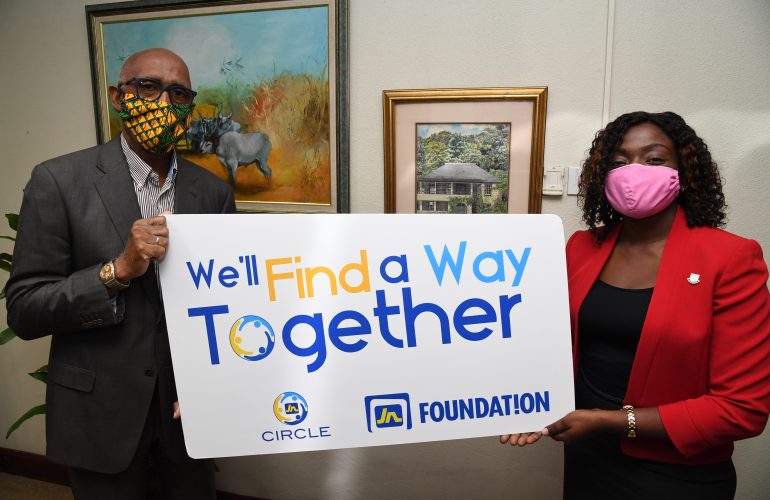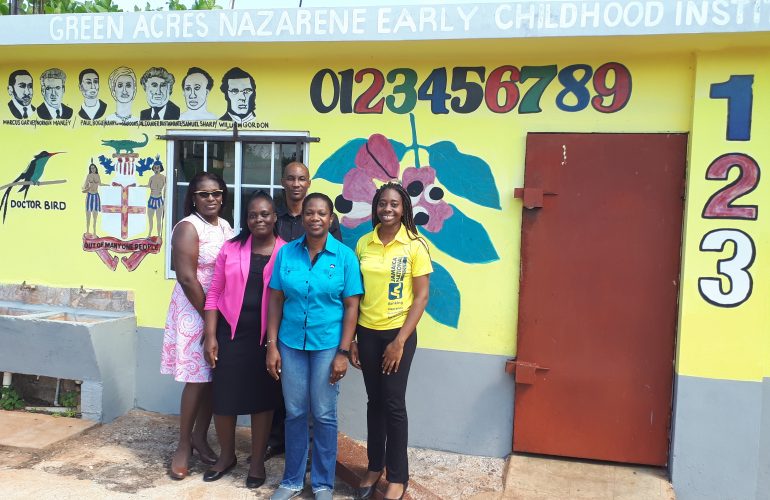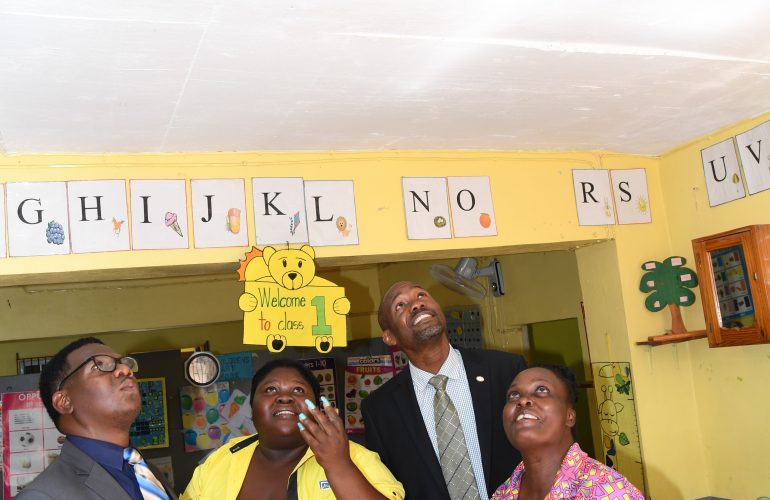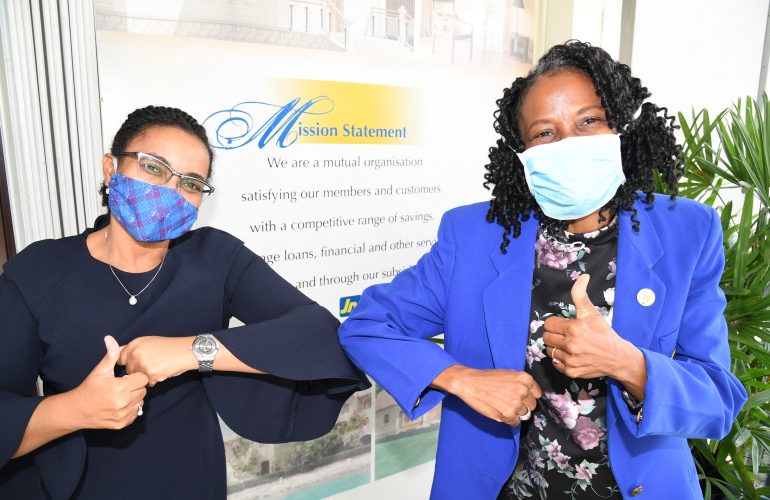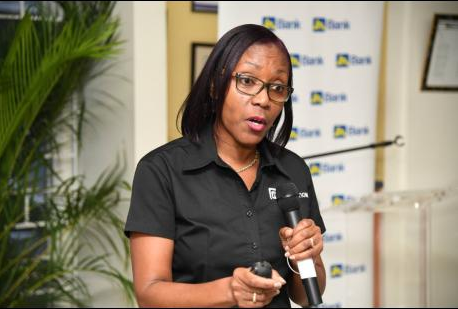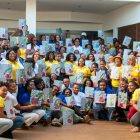JN Circle Distribute Vouchers to Needy Affected by COVID-19
Troy Bygrave (right), business relationship and sales manager presents electronic hand sanitizer to a representative of the St Thomas Parish Library. Sanitizers were also presented to the Morant Bay and Yallahs Fire Stations and the Morant Bay Police Station.
The Jamaica National Group, through its JN Circle Chapters, distributed some $9 million to fund projects and deliver grocery vouchers, to provide assistance for persons at the community level, who have been negatively affected by the COVID-19 pandemic.
The funds were made available through a Member Welfare Fund, which was established in March 2020, to deliver relief to those in need; and provide support to persons and organisations assisting the vulnerable; as well as, persons on the frontline, helping to control and treat COVID-19.
Claudine Allen, member ombudsman of The Jamaica National Group; and lead of the JN Circle, stated that the Fund has assisted the organisation to reach more persons who are in need.
“The COVID-19 pandemic has left the most vulnerable of our society in need. Therefore, this initiative was deliberately designed to assist those persons who have been affected,” Miss Allen informed.
She noted that the Fund was being administered by the JN Foundationand the JN Circle; to provide grant funding for initiatives, which seek to bolster the efforts of communities in the management of the COVID-19 crisis.
One beneficiary from the Fund was The Jamaica Constabulary Force in Christiana, Manchester, which was assisted to keep its team safe, while they were on the job.
The supplies included masks, hand sanitizers, detergents, and a snack counter for officers, working on the late shift. They were presented to the police, courtesy of the JN Circle Christiana.
“This gesture is timely. COVID-19 is being taken seriously by the police officers here; and, as part of the first responders to the pandemic, we are very exposed. I say a big thank you to JN Circle for this donation,” Inspector Simon McCormack, of the Christiana Police Station, said.
Alethia Peart, business relationship and sales manager, at JN Bank Christiana, said that the police were identified for assistance, given their first responder role, in the fight against COVID-19.
The JN Circle Morant Bay made presentations of electronic hand sanitizers to the Morant Bay and Yallahs Fire Stations, Morant Bay Police Station and the St Thomas Parish Library on June 29.
All 16 JN Circles are currently identifying needs within their communities, arising from the COVID-19 pandemic, and are seeking ways to alleviate those issues through the JN Member Welfare Fund.
To date, through the fund, the JN Group has contributed $1.5 million to the Nurses Association of Jamaica, to assist the country’s nurses in their fight against the spread of COVID-19. The work of the National Council for Senior Citizens, the umbrella organisation what provides support to senior citizens, was also enhanced by a contribution of $1 million, through the Member Welfare Fund. The Police Federation and other communities across the country have also benefitted from the Fund.

